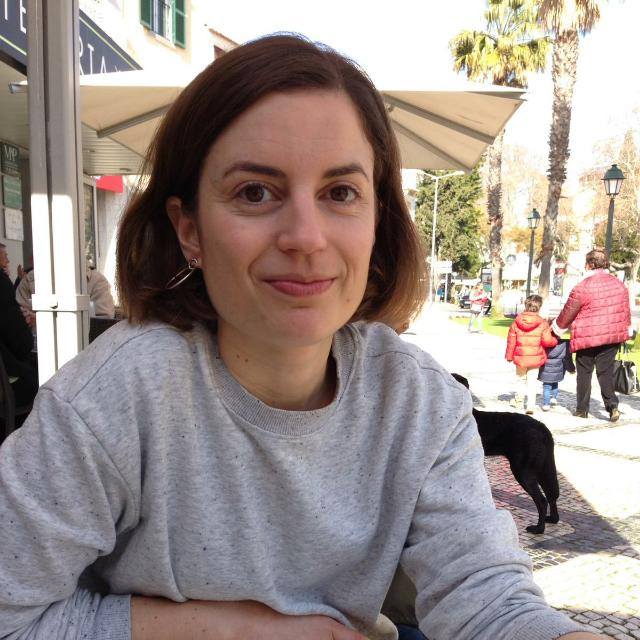©Andreia Santana, Forecasting Labor
Translated by Ana Fletcher
Edited by Kim Olson
“Despair, an uncomfortable awareness of his own inadequacy, began to gnaw at him, he felt fear might conquer all if they were to fail. I and everyone I know, the whole world, perhaps, all of us turned into mice, Alfredo (…)”
It had been a week since Cacilda, ambitious Cacilda, had turned up at the cave with the machine that could make miracles, or spread fear.
Ricardo had finished work for the day. He always fancied a coffee at the end of his shift at the Department of Decontamination. He wasn’t just tired, he was miserable; the chaos of the lab, the machine, silent as a statue, that offered no answers to his questions. In the canteen he sat at the counter and placed his order. His voice was barely louder than a whisper. An empada and a coffee, please, Alfredo.
Despair, an uncomfortable awareness of his own inadequacy, began to gnaw at him, he felt fear might conquer all if they were to fail. I and everyone I know, the whole world, perhaps, all of us turned into mice, Alfredo, doomed to a lifetime of peering out the window, of avoiding the neighbours, waving to friends from afar, stuck at home indoors (or in this ancient coastal fort, where we test for the alchemy that could end this nightmare), dreaming of how we might make love in the time of the plague. Ricardo thought of Teresa. A shiver. Hardly there.
Nausea taking hold from within, suffocating us. Compulsive rodents in a tunnel of worms, a forbidden cave in which fear can spread.
You look tired, Professor. I always feel like this at the end of a shift. The illusion of knowledge shatters, I’m cut back down to size, baseless unease returns, Ricardo replied, adding a spoonful of sugar to his coffee.
It’s this constant pressure, Alfredo, the lack of space, the lack of air, rushing the process with nothing to show for it, not the faintest glimmer. What can we do, my dear Alfredo? We’re attempting to grasp the workings of the enemy, but we’re not gods, merely men and women, weak and bewildered.
Alfredo pumped the hand sanitiser, cleared away the coffee cup, wiped down the counter. Men become gods under just these circumstances, Professor. In times of catastrophe the gods will fall mute and blind, disappearing without a trace. Only man can bring about miracles. Alfredo took in Ricardo’s weary face, the unkempt beard, the messy greying hair. The past few days had visibly aged him.
I lost family members, in Flanders, to the Spanish flu. On the slopes of memory I carry the weight of those tragic deaths. I’ve volunteered not for the glory, unlike that pushy, grasping Cacilda, but because I know it to be my duty. We’re alone with our conscience and that’s a terrible thing, dear friend. I think about the tunnel waiting for us beyond the light, about a life free from fear. When we’re allowed to kiss again, will we be afraid? Will we have to re-learn how to use our hands? Will we always be scared to touch one another? Will Earth still be blue? What face will we wear when we escape this ordeal?
Dismissing this line of outlandish conjecture, Alfredo asked, The robot, the one they’re programming, is it coming along, Professor? Yes, of course. It’s called Reboredo. What kind of a name is that?
Teresa arrived out of breath. Professor, we think we’ve found a way to block the protein. Have they switched on the machine? Ricardo asked. Not without you, Professor. I want to kiss this woman, I so badly want to kiss her, Ricardo thought to himself, suddenly uncomfortable – he knew then he would always lust for her. It did not bode well.
They quickened their paces through the long maze of sealed doors.
Bats roosted in the roof above their heads, a strange glint in their eyes.
Read the original chapter in Portuguese

Domingos Lobo moved from school to school in Lisbon, in a kind of soft rebellion of the 1960s, and then between the Faculties of Law and Literature, and the Conservatório Nacional (National School of Arts and Music). He clings on to an MA in Administration and Cultural Economics, which he has so far found very little use for. He has 22 published books (poetry, theatre, fiction, essay) with others in the works, as well as several literary awards and medals to polish his ego.

Ana Fletcher is a senior editor at Jonathan Cape, an imprint of Penguin Random House. She lives in London and can be found at @anafletchles.
Listen to this chapter on Facebook read by Ben Slack
(video production by Gabriela Ruivo)
Escape Goat is the twin page of Bode Inspiratório
All content subject to copyright. All rights reserved
